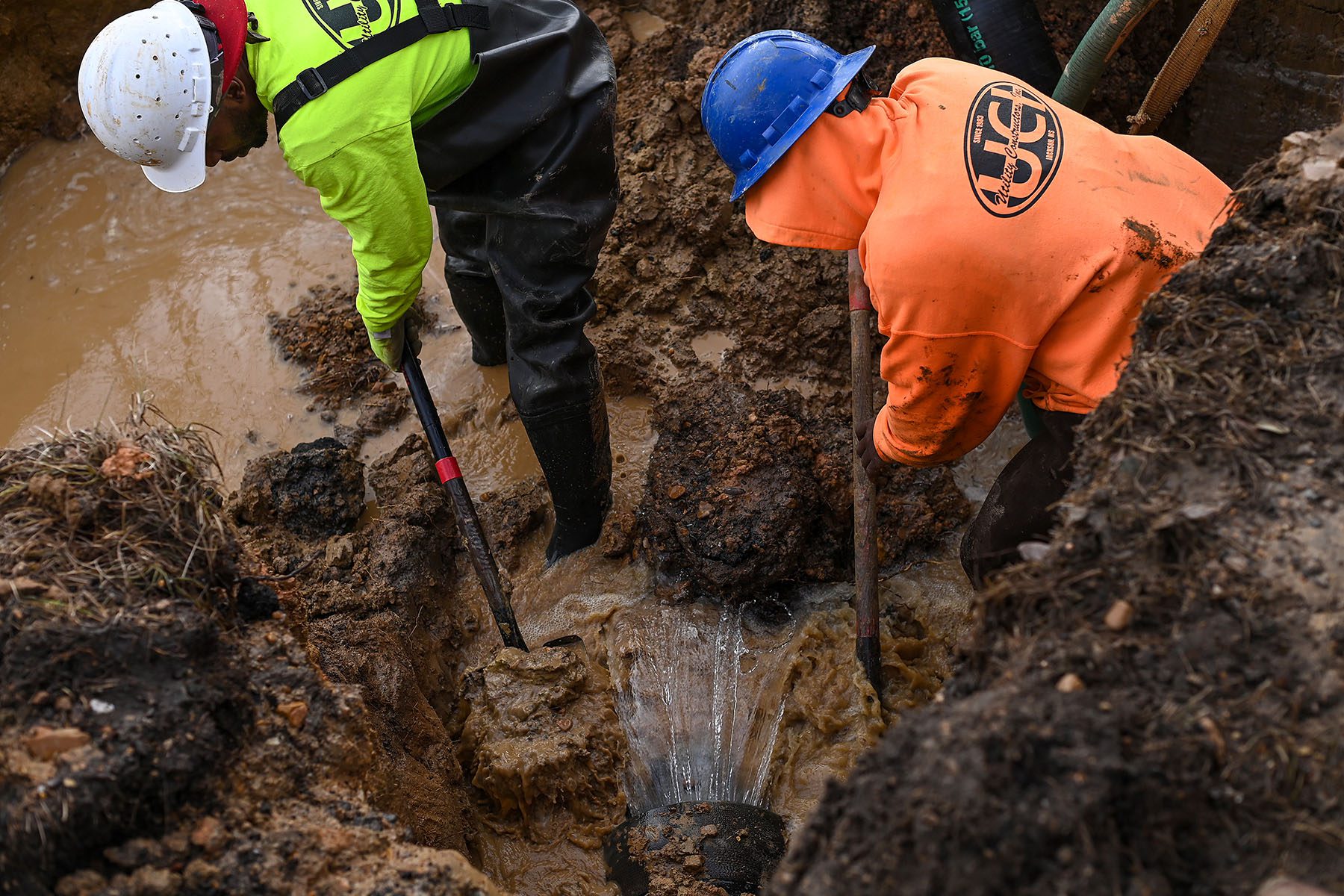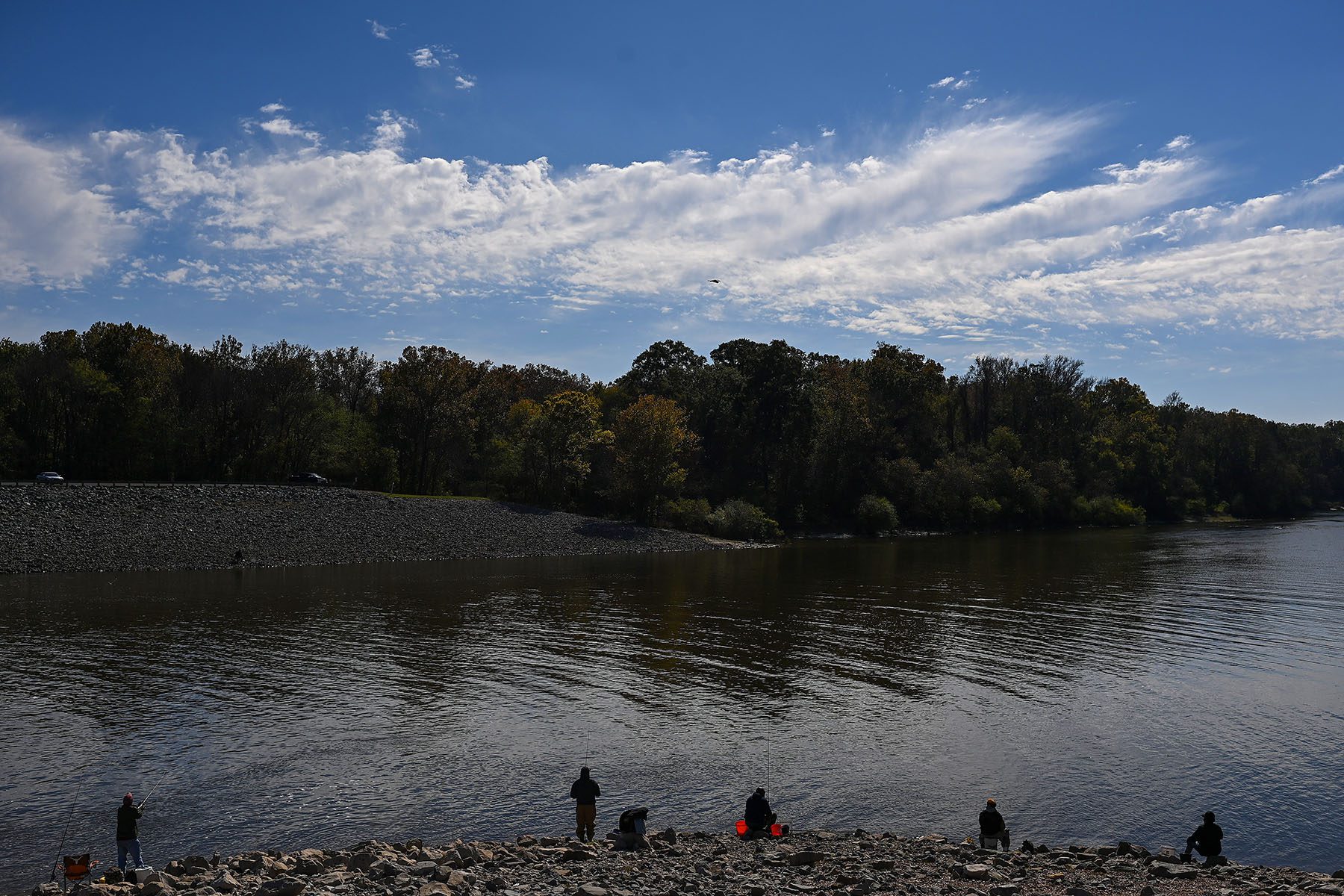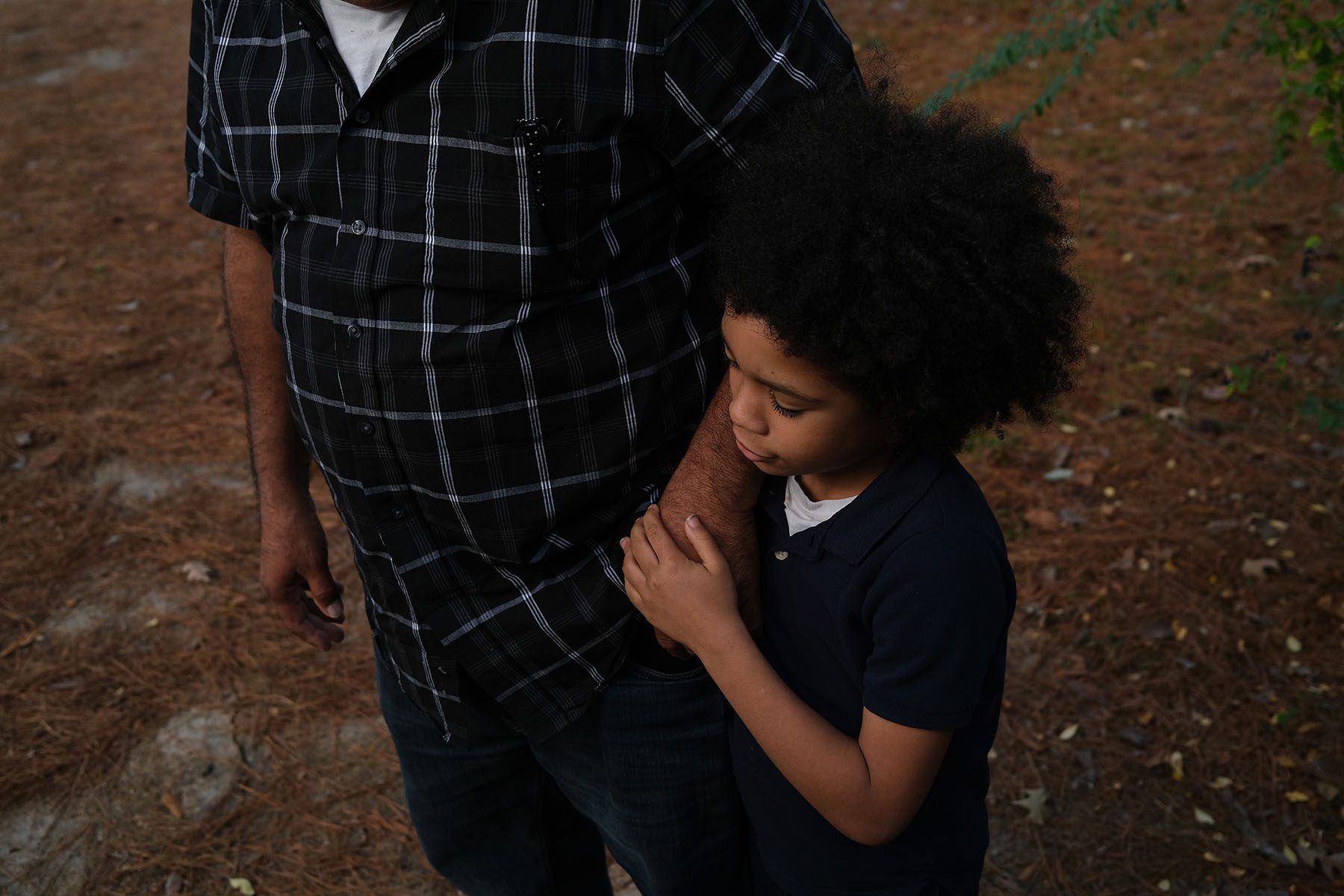We’re answering the “how” and “why” of caregiving and environment news. Subscribe to our daily newsletter.
Sequaya Coleman, 36, has struggled to get water for herself and for her two-month-old baby in Jackson, Mississippi.
“You need water for everything. You need water to brush your teeth, you need water to cook. Now that the baby is born, there’s water for formula,” Coleman told The 19th.
She receives WIC, a food aid program directed specifically at women and children. However, WIC in Mississippi does not pay for water.
Instead, Coleman relies on help from family and friends. Her mother, who has a car, goes to distribution sites at churches and community centers to find water.
“The lines at water distribution centers are extremely long, and with a newborn baby, you don’t have that kind of time,” Coleman said.
Jackson’s water treatment facility failed in late August, leaving 150,000 residents without running water. In early January it went offline again. Water has since been restored to the general population, but for pregnant people and those with infants and small children like Coleman, the water is still too dangerous to drink due to ongoing lead contamination.
The 19th spoke with other mothers from Jackson in addition to Coleman who expressed similar frustrations. They have older children but still do not feel comfortable drinking the water that comes out of the tap or giving that water to their children. They have incurred extra costs, financial and otherwise, to provide bottled water for themselves and their families.
Wilma Ammons, 37, has two children, ages 3 and 5. Her older child, a boy, has ADHD and has struggled with the school closures caused by the water crisis. This, in turn, has made it difficult for Ammons to work. Her job as a bank teller gives her some flexibility that previous positions did not.
“My son is a special child and needs special attention. He has a 504 plan they go by at school. When school is out, I have to be out. Because a lot of people don’t want to deal with my baby. He’s challenging. But he’s still my baby,” Ammons told The 19th.
Ammons uses bottled water for everything — brushing her teeth and her children’s teeth, cooking, drinking and more.
“I don’t trust the water [from the tap]. Even to brush my teeth. I don’t want my kids to get lead. I don’t want my kids to be sick,” Ammons said.
According to Coleman, she has received little to no guidance from city officials or even her own doctors about the water. Most of what she knows she found searching online herself, or from talking to other members of her community.
“I got instructions through the news and Google. … No doctor educated us on the water situation. Everything I learned I learned on my own,” she said.
In 2016, the Mississippi State Department of Health issued an advisory, informing those in Jackson who are pregnant or who have small children to not drink water straight from the tap. But outreach to residents has been minimal, and other advisories have sometimes left out considerations for this vulnerable population altogether.
Boil-water advisories, for example, fail to mention the ongoing issue with lead contamination. “If you boil the water it is actually concentrating the lead,” said Stephanie Showalter Otts, an environmental attorney and co-leader of the University of Mississippi’s Lead in Drinking Water Project.
“I don’t think that there is as much awareness of the lead risks, and we have not seen much discussion in the news coverage or media coverage or press releases from the Department of Health,” Otts said.
With no real messaging around that danger, she worries that residents aren’t aware of the risk. “If you are pregnant, or have infants, especially if their formula is mixed with the tap water, they could be increasing the risk if they’re using boiled water, and that’s not communicated very well,” Otts said.
Coleman boiled water at one point, late in her pregnancy, when she was unable to get bottled water. Her mother’s car had been totaled in an accident.

“It tasted just like my steel pot,” Coleman said.
Coleman is concerned about that brief period of desperation.
“My baby, he cries a lot. I’m starting to wonder, did that boiled water affect my baby? I hope not. I hope not,” she said.
No level of lead exposure is safe, and over 150 million Americans are exposed to some level of lead in their drinking water, according to the Natural Resources Defense Council.
“For young children, the concern and impact is primarily developmental impacts. So it’s been linked to reductions in IQ, hyperactivity and attention deficits,” said Otts. “There have been studies that show that there can be those impacts at low levels of exposure.”
Ammons believes that the water in Jackson may have contributed to her son’s disability. Lead exposure is linked to higher prevalence of ADHD in children. She also did her best to get bottled water for herself and her children but ran into difficulties.
“Sometimes we didn’t have water at home, and every line we got in, by the time we got to the front, the [water distribution center] had closed. Or they were out of water, just didn’t have water anymore. We had to go to the store and get it, but it was hard with the kids. I did what I had to do,” Ammons said.
For pregnant people, studies have also linked lead exposure to a risk of miscarriage and low birth weight, and lead exposure can be transferred to the fetus if the pregnant person was exposed during pregnancy, Otts added.

In 2015, a water sample testing in Jackson revealed that 22 percent of Jackson households that were tested had levels of lead that exceeded federal action levels. Hinds County, where most of the city is located, has the highest number of children in the state with elevated blood lead levels. Lead in the drinking water is just one culprit; lead-based paint is another.
In December, Congress approved $600 million to be sent to repair the water infrastructure in Jackson. This came on the heels of a Title VI complaint filed in September by the NAACP alleging that the state has discriminated against Jackson residents on the basis of race, diverting funding away from upgrading the water system for a city that is 83 percent Black, according to the Census Bureau. But any progress on providing reliable and clean water is slow moving.
Abre’ Conner, the director of environmental and climate justice for the NAACP, who has been working extensively in Jackson, said it’s going to take over a year just to complete an assessment on the water treatment plant. “As they continue to do that assessment, there are going to be things that continue to pop up,” said Conner, who added that the current measures in place are temporary solutions. “[The $600 million] is nowhere near how much they actually need, but it is a good start,” she said.
In the meantime, there are measures that residents can take to stay safe, Otts said. For families who can afford it, point-of-use-water filters installed on sinks can reduce lead. Running water for a few minutes in the mornings to flush out the system can also help, as well as avoiding using hot water to cook with, since it can leach more lead than cold water.
Coleman has little faith that the water situation will improve any time soon.
“I do not think this is going to get better. Our governor and our city managers cannot even come together to come to a conclusion about the water. It’s a huge mess,” she said.





